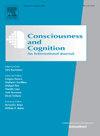当行动期望满足奖励历史:抑制控制中主动控制和反应控制的相互作用
IF 2
3区 心理学
Q2 PSYCHOLOGY, EXPERIMENTAL
引用次数: 0
摘要
根据目前的目标和过去的经验,灵活地抑制不适当的反应是至关重要的。双重控制机制(dual-mechanism of control, DMC)模型认为认知控制包括主动控制(期望驱动)和反应控制(刺激驱动,如奖励历史)。然而,这些机制如何在抑制控制中相互作用仍不清楚。我们通过两个不同的奖励训练范式:价值驱动的注意捕获(实验1)和货币激励延迟任务(实验2),通过线索和非线索的Go/NoGo任务来探索这种相互作用。结果表明,奖励历史仅在通过MIDT建立时才与行动期望相互作用(实验2),先前奖励的NoGo目标在意外条件下表现出较低的任务误差。相反,来自VDAC范式的奖励历史(实验1)对抑制的影响独立于行动期望。在这两个实验中,奖励历史通常会促进反应抑制。这些发现表明,主动控制和反应性控制之间的关系是灵活的,特别是当反应性控制依赖于先前奖励学习的性质时。这项研究为人类如何权衡当前目标和过去经验以指导动态环境中的适应性行为提供了新的见解。本文章由计算机程序翻译,如有差异,请以英文原文为准。
When action expectation meets reward history: The interaction of proactive and reactive control during inhibitory control
Flexibly inhibiting inappropriate responses based on current goals and past experiences is crucial. The dual-mechanism of control (DMC) model proposes that cognitive control involves proactive (expectation-driven) and reactive (stimulus-driven, such as reward history) control. However, how these mechanisms interact during inhibitory control remains unclear. We explored this interaction using cued and non-cued Go/NoGo tasks through two experiments, employing different reward training paradigms: value-driven attentional capture (VDAC, Experiment 1) and monetary incentive delay task (MIDT, Experiment 2). The results showed that reward history interacted with action expectation only when established via the MIDT (Experiment 2), with previously rewarded NoGo target showing lower commission errors under the unexpected condition. In contrast, reward history from the VDAC paradigm (Experiment 1) influenced inhibition independently of action expectation. Across both experiments, reward history generally facilitated response inhibition. These findings suggest that the relationship between proactive and reactive control is flexible, particularly when reactive control is dependent on the nature of prior reward learning. This study provides new insights into how humans weigh current goals with past experiences to guide adaptive behavior in dynamic environments.
求助全文
通过发布文献求助,成功后即可免费获取论文全文。
去求助
来源期刊

Consciousness and Cognition
PSYCHOLOGY, EXPERIMENTAL-
CiteScore
4.30
自引率
8.30%
发文量
123
期刊介绍:
Consciousness and Cognition: An International Journal provides a forum for a natural-science approach to the issues of consciousness, voluntary control, and self. The journal features empirical research (in the form of regular articles and short reports) and theoretical articles. Integrative theoretical and critical literature reviews, and tutorial reviews are also published. The journal aims to be both scientifically rigorous and open to novel contributions.
 求助内容:
求助内容: 应助结果提醒方式:
应助结果提醒方式:


